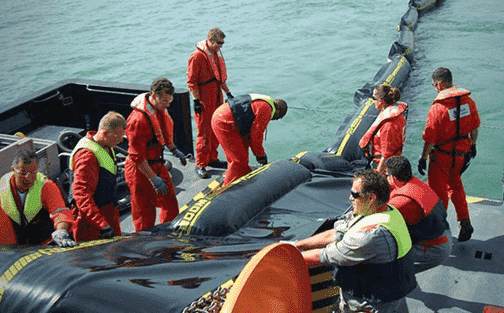COURSE OVERVIEW
HE0142(AD6) : Quantitative Risk Assessment (QRA) in Production Operations: Risk Assessment, Hazard Identification, Consequence & Frequency Analysis

OVERVIEW
| COURSE TITLE | : | HE0142(AD6) : Quantitative Risk Assessment (QRA) in Production Operations: Risk Assessment, Hazard Identification, Consequence & Frequency Analysis |
| COURSE DATE | : | Sep 09 - Sep 12 2024 |
| DURATION | : | 4 Days |
| INSTRUCTOR | : | Mr. Pete Du Plessis |
| VENUE | : | Doha, Qatar |
| COURSE FEE | : | $ 5000 |
| Request For Course Outline | ||
OTHER SCHEDULED DATES
| Date | : | Mar 04 - Mar 07 (4 Days) | Location | : | Abu Dhabi, UAE | Classroom Fee (US$) | : | $ 4500 | Course Info |
| Date | : | Jun 24 - Jun 27 (4 Days) | Location | : | Dubai, UAE | Classroom Fee (US$) | : | $ 4500 | Course Info |
Course Description
This practical and highly-interactive course includes various practical sessions and exercises. Theory learnt will be applied using our state-of-the-art simulators. Quantitative Risk Assessment (QRA) is the process through which the risks associated with any system or process are assessed and managed. Risk is always associated with uncertainty and undesirability of certain states of the system of process of interest. QRA methods are used to identify the risk scenarios and estimate the corresponding probabilities. QRA methods identify system vulnerabilities, and rank them according to their occurrence frequencies and severity of the consequences. In addition, uncertainties associated with the data and models used to quantify the levels of risk are identified and factored into measures of risk. This course is designed to provide delegates with detailed and up-to-date overview of Quantitative Risk Assessment (QRA). It will cover quantitative risk assessment; hazard identification; consequences analysis including loss of containment calculation, explosion modelling, fire modelling and dispersion modelling; frequency analysis; and quantifying risk using of probit analysis. link to course overview PDF
TRAINING METHODOLOGY
This interactive training course includes the following training methodologies as a percentage of the total tuition hours
LecturesWorkshops & Work Presentations
Case Studies & Practical Exercises
Videos, Software & Simulators
In an unlikely event, the course instructor may modify the above training methodology before or during the course for technical reasons.
VIRTUAL TRAINING (IF APPLICABLE)
If this course is delivered online as a Virtual Training, the following limitations will be applicable
| Certificates | : | Only soft copy certificates will be issued to participants through Haward’s Portal. This includes Wallet Card Certificates if applicable |
| Training Materials | : | Only soft copy Training Materials (PDF format) will be issued to participant through the Virtual Training Platform |
| Training Methodology | : | 80% of the program will be theory and 20% will be practical sessions, exercises, case studies, simulators or videos |
| Training Program | : | The training will be for 4 hours per day starting at 09:30 and ending at 13:30 |
| H-STK Smart Training Kit | : | Not Applicable |
| Hands-on Practical Workshops | : | Not Applicable |
| Site Visit | : | Not Applicable |
| Simulators | : | Only software simulators will be used in the virtual courses. Hardware simulators are not applicable and will not be used in Virtual Training |
RELATED COURSES

HE0965 : Scaffolding Inspection Training
- Date : Dec 22 -Dec 26 / 3 Days
- Location : Muscat, Oman
- Course Details Register

HE0790 : Oil Spill & Pollution Control
- Date : Dec 15 -Dec 19 / 3 Days
- Location : Dubai, UAE
- Course Details Register

HE1148(NA3) : Certificate in Process Safety Management
- Date : Jan 19 -Jan 23 / 3 Days
- Location : Kuwait City, Kuwait
- Course Details Register

HE1822 : Professional Process Safety Inspector (PPSI): Module 3: Human Factors & Cultural Aspects
- Date : Dec 16 -Dec 20 / 3 Days
- Location : Abu Dhabi, UAE
- Course Details Register
